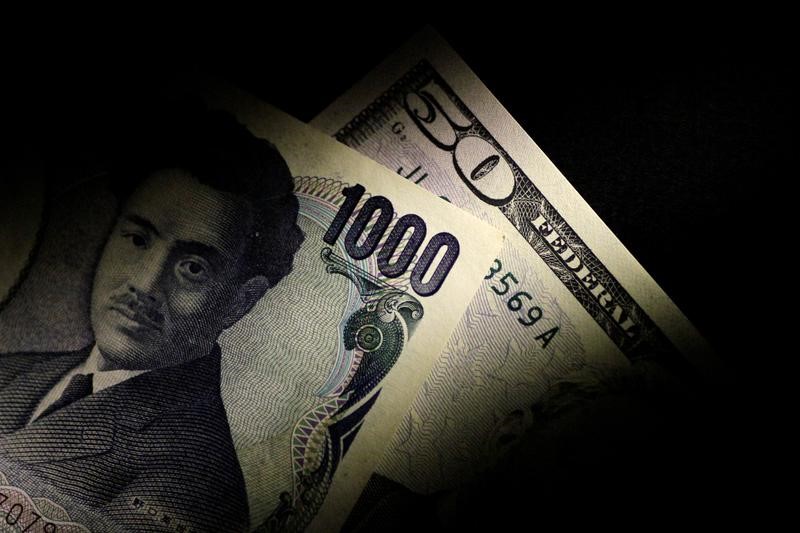Asia FX steadies as dollar dips after Powell comments; yen intervention eyed
Most Asian currencies steadied on Wednesday tracking some overnight weakness in the dollar after Federal Reserve Chair Jerome Powell flagged progress towards bringing down inflation.
The Japanese yen remained fragile and at its weakest levels in 38 years, with focus squarely on potential currency market intervention by the government.
Sentiment towards Asian markets remained weak following disappointing purchasing managers index data from China, while anticipation of more signals on U.S. interest rates also kept traders on edge. Dollar nurses some losses, more rate cues awaited
The dollar index and dollar index futures both steadied in Asian trade after losing about 0.2% each on Tuesday.
Losses in the dollar came as Powell flagged some progress in bringing down inflation. U.S. Treasury yields also sank after Powell’s speech.
But losses in the dollar were limited, given that Powell also warned that the Fed still needed more confidence to begin cutting interest rates.
Powell’s comments came before more key signals on U.S. monetary policy and the economy this week. The minutes of the Fed’s June meeting, along with more addresses by Fed officials, are due on Wednesday.
Nonfarm payrolls data is due on Friday. Japanese yen fragile with USDJPY above 161; intervention in focus
The Japanese yen’s USDJPY pair rose 0.1% to 161.63 yen, weakening further as verbal warnings on intervention from Japanese officials did little to support the currency.
Yen weakness this week was driven by a sharp downward revision in first-quarter Japanese gross domestic product data, which ramped up bets that a struggling economy will give the Bank of Japan little headroom to tighten policy.
But traders remained on guard over any potential intervention measures by the government. The government had last intervened in May when USDJPY had then breached 160.
Traders speculated that the government was planning to intervene during the July 4 U.S. market holiday, when trading volumes are expected to be slim. Chinese yuan weak as services PMI disappoints
The Chinese yuan’s USDCNY pair rose slightly and remained at its highest level since November.
Weak purchasing managers index data added to pressure on the yuan. The Caixin services PMI read weaker than expected for June, ramping up concerns that growth in the sector, which has otherwise underpinned the Chinese economy, was slowing.
Uncertainty over China’s economic prospects had battered the yuan in recent weeks.
Broader Asian currencies steadied from recent losses, although sentiment remained weak amid uncertainty over U.S. rates.
The Australian dollar’s AUDUSD pair rose 0.2%, as data showed retail sales grew more than expected in May. Higher retail spending underpins Australia's inflation outlook, pointing to higher interest rates.
The South Korean won’s USDKRW pair rose 0.3%, while the Singapore dollar’s USDSGD pair rose 0.1%.
The Indian rupee’s USDINR pair moved little but remained close to recent record highs.
Source: Investing.com
